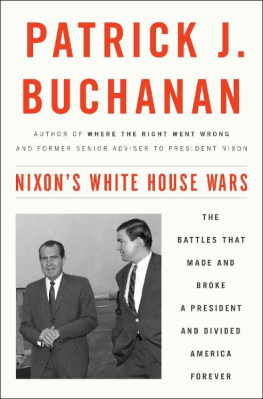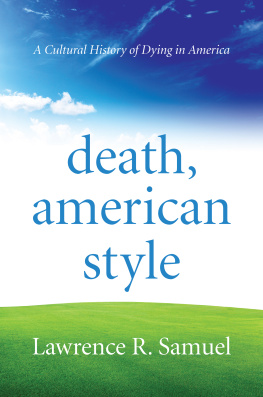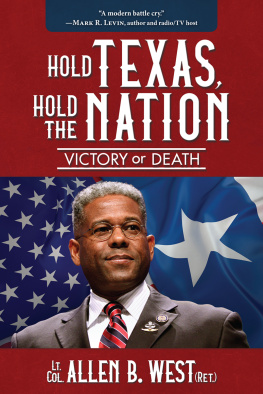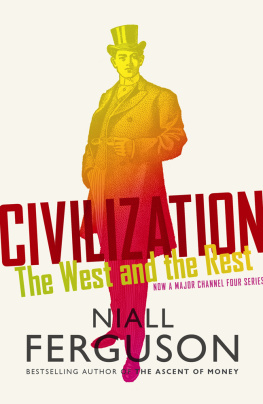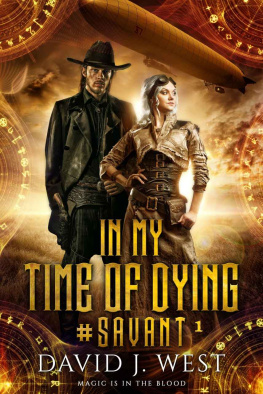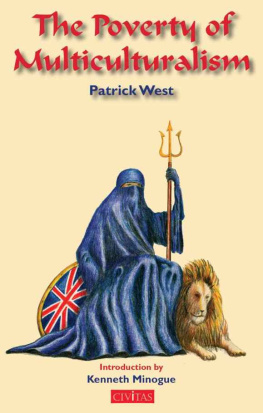P at, were losing the country we grew up in.
Again and again in the endless campaign of 2000 I heard that lament from men and women across America. But what did they mean by it?
WHY SHOULD SADNESS or melancholyas though ones father were dying and there were nothing to be donehave crept into the hearts of Americans on the cusp of the Second American Century? Were these not, as Mr. Clinton constantly reminded us, the best of times in America, with the lowest unemployment and inflation in thirty years, crime rates falling, and incomes soaring? Are we not, as Madeleine Albright never ceased to boast, the indispensable nation? Was this not, as Mr. Bush trumpeted, our time of unrivaled military power, economic promise, and cultural influence? We had won the Cold War. Our ideas were winning all over the world. What were they talking about? What was their problem?
It is this: America has undergone a cultural and social revolution. We are not the same country that we were in 1970 or even 1980. We are not the same people. After the 2000 election, pollster William McInturf told the Washington Post : We have two massive colliding forces. One is rural, Christian, religiously conservative. [The other] is socially tolerant, pro-choice, secular, living in New England and the Pacific Coast
Disraeli said Victorian England was two nations, rich and poor.
While the awful events of September 11 created a national unity unseen since Pearl Harborbehind President Bush and his resolve to punish the perpetrators of the massacres of three thousand Americansthey also exposed a new divide. This chasm in our country is not one of income, ideology, or faith, but of ethnicity and loyalty. Suddenly, we awoke to the realization that among our thirty-one million foreign-born, a third are here illegally, tens of thousands are loyal to regimes with which we could be at war, and some are trained terrorists sent here to murder Americans. For the first time since Andrew Jackson drove the British out of Louisiana in 1815, a foreign enemy is inside the gates, and the American people are at risk in their own country. In those days after September 11, many suddenly saw how the face of America had changed in their own lifetimes.
When Richard Nixon took his oath of office in 1969, there were 9 million foreign-born in the United States. When President Bush raised his hand, the number was nearing 30 million. Almost a million immigrants enter every year; half a million illegal aliens come in with them. The adjusted census of 2000 puts the number of illegals in the United States at 9 million. Northeastern University estimates 11 million, as many illegal aliens as there are people in Alabama, Mississippi, and Louisiana. There are more foreign-born in California8.4 millionthan people in New Jersey, more foreign-born in New York State than people in South Carolina. Even the Great Wave of immigration from 1890 to 1920 was nothing like this.
America is Gods Crucible, the great Melting-Pot where all the races of Europe are melting and reforming, wrote Israel Zangwill, the Russian-Jewish playwright, in his famous 1908 play The Melting Pot. But the immigration tsunami rolling over America is not coming from all the races of Europe. The largest population transfer in history is coming from all the races of Asia, Africa, and Latin America, and they are not melting and reforming.
In 1960, only sixteen million Americans did not trace their ancestors to Europe. Today, the number is eighty million. No nation has ever undergone so rapid and radical a transformation. At Portland State in 1998, Mr. Clinton rhapsodized to a cheering student audience about a day when Americans of European descent will be a minority.
Today, largely because of immigration, there is no majority race in Hawaii or Houston or New York City. Within five years there will be no majority race in our largest state, California. In a little more than fifty years there will be no majority race in the United States. No other nation in history has gone through demographic change of this magnitude in so short a time.
Correction: no nation in history has gone through a demographic change of this magnitude in so short a time, and remained the same nation. Mr. Clinton assured us that it will be a better America when we are all minorities and realize true diversity. Well, those students are going to find out, for they will spend their golden years in a Third World America.
Uncontrolled immigration threatens to deconstruct the nation we grew up in and convert America into a conglomeration of peoples with almost nothing in commonnot history, heroes, language, culture, faith, or ancestors. Balkanization beckons. The strongest tendency of the late [twentieth century], writes Jacques Barzun in his history of the West, From Dawn to Decadence, was Separatism .
It affected all forms of unity . The ideal of Pluralism had disintegrated and Separatism took its place; as one partisan of the new goal put it, Salad Bowl is better than melting pot. The great nations of Europe have begun to break apart. Writes Barzun:
If one surveyed the Occident one could see that the greatest political creation of the West, the nation-state, was stricken. In Great Britain the former kingdoms of Scotland and Wales won autonomous parliaments; in France the Bretons, Basques, and Alsatians cried out for regional power. Corsica wanted independence and a language of its own, Italy harbored a league that would cut off the North from the South, and Venice produced a small party wanting their city a separate state
As people return their allegiance to the lands whence they came, transnational elites pull us in the opposite direction. The final surrender of national sovereignty to world government is now openly advocated. From Walter Cronkite to Strobe Talbott, from the World Federalist Association to the UN Millennium Summit, the chorus swells.
At Maastricht in 1991, fifteen European nations, including France, Italy, Germany, and Great Britain, decided to begin converting their free-trade zone into a political union and transferring their sovereign powers to a socialist superstate. In 2000, the president-elect of Mexico came here to propose a North American Union of Canada, Mexico, and the United States. Though the erasure of our borders would mean the end of our nation, Vicente Fox was hailed in the U.S. media as a visionary, and President Clinton expressed his regret that he might not be around to see it happen: I think over the long run, our countries will become more interdependent . It will be the way of the world . I regret that I wont be around for a lot of it. But I think its a good thing.
Nor is America immune to the forces of separatism. A sense that America, too, is pulling apart along the seams of ethnicity and race is spreading. Moreover, America has just undergone a cultural revolution, with a new elite now occupying the commanding heights. Through its capture of the institutions that shape and transmit ideas, opinions, beliefs, and valuesTV, the arts, entertainment, educationthis elite is creating a new people. Not only ethnically and racially, but culturally and morally, we are no longer one people or one nation under God.
Millions have begun to feel like strangers in their own land. They recoil from a popular culture that is saturated with raw sex and trumpets hedonistic values. They see old holidays disappear and old heroes degraded. They see the art and artifacts of a glorious past removed from their museums and replaced by the depressing, the ugly, the abstract, the anti-American. They watch as books they cherished disappear from the schools they attended, to be replaced by authors and titles they never heard of. The moral code that they were raised to live by has been overthrown. The culture they grew up with is dying inside the country they grew up in.


